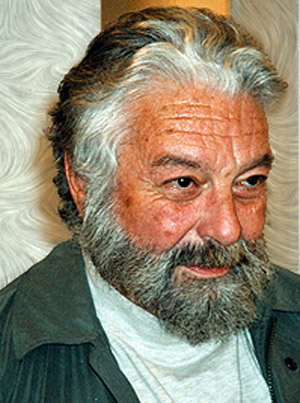
Fabre d’Olivet, prodigious philologist of the early 19th century, contradicted the classical-academic etymology of the words “poetry” and “poet” as, respectively, “making” and “maker”, thereby superseding the false consciousness exuding from connotations of this dictionary and literary “definition” persisting to this day even among the allegedly “avant-garde.”
Fabre d’Olivet’s erudition discovered that the Greek word for poetry derived from the Phoenician which translated signifies: “the superior principle of language.” Developing correspondences with this central etymological key in the lengthy preface “The Essence and Form of Poetry” to his book, The Golden Verses of Pythagoras, Fabre d’Olivet signaled his profound agreement with the poetics of Sir Francis Bacon who, from the following viewpoint, can be justly claimed as a precursor of surrealism:
“Poetry does truly refer to the Imagination, which may at pleasure join that which nature has severed and sever that which nature has joined and so make unlawful matches and divorces of things… it does raise and erect the mind by submitting the show of things to the desires of the mind, whereas reason does buckle and bow the mind to the nature of things.”
Rejecting “craftsmanship”, the surrealist viewpoint, respecting sovereignty of mind, the primacy of human desires and oneiric exaltation, considers and finds true poetry to be an instrument of knowledge, of discovery, of unveiling, and of human freedom. Authentic poetry is certainly the highest principle of language, but one which has generally been lost and which surrealism aims to restore, illuminating André Breton’s saying: “Language has been given to man so that he make surrealist use of it,” together with Benjamin Péret’s genial affirmation, “poetry is the source and crown of all thought.”
Surrealism’s fifty years of poetic evidence demonstrate the initial steps taken towards this supreme disalienation of humanity with its language, an emancipatory leap in opposition to the civilized debasement and fragmentation of language by reason, that is, language conditioned to serve as aesthetic object, submission-to-reality, national chauvinism, entertainment, neo-formal energy-fields, stylization, mirror-mockery, everyday speech, pseudo-revolutionary mystification, personal confession, conscious self-expression and other idiocies.
Philip Lamantia, “The Crime Of Poetry”
❏
